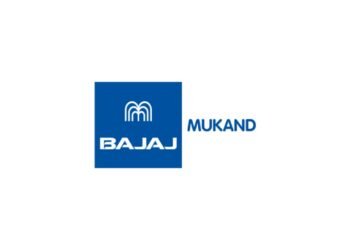Ensuring Transparency: MHA’s Latest Rules for NGOs Under FCRA
In a significant move to enhance transparency and curb potential misuse of foreign contributions, India’s Ministry of Home Affairs (MHA) has introduced stringent regulations for Non-Governmental Organizations (NGOs) under the Foreign Contribution (Regulation) Act (FCRA). Announced in May 2025, these amendments aim to ensure that NGOs receiving foreign funding adhere to strict financial and operational guidelines, including a notable restriction on publishing news-related content without certification. This development has sparked discussions among civil society organizations, policymakers, and global watchdogs, as it reshapes the operational landscape for NGOs in India. For the millions of people impacted by the work of these organizations, the new rules signal a commitment to accountability but also raise questions about freedom of expression and operational autonomy.
Stricter Rules for Foreign-Funded NGOs
The MHA’s latest notification mandates that NGOs seeking FCRA registration or renewal must provide an undertaking to comply with the Good Practice Guidelines of the Financial Action Task Force (FATF), the global authority on combating money laundering and terror financing. This aligns with India’s broader efforts to strengthen its financial oversight mechanisms and maintain its status as a compliant member of the FATF. The undertaking requires NGOs to ensure their funds are not misused for activities that could undermine national security or public interest.
Additionally, NGOs must submit detailed financial statements and audit reports for the past three financial years. These documents, including statements of assets and liabilities, receipts, payments, and income and expenditure accounts, are now mandatory to demonstrate financial transparency. This move is seen as a response to concerns about unregulated foreign contributions potentially fueling activities contrary to India’s interests.
Ban on News Content Without Certification
One of the most striking aspects of the new regulations is the restriction on NGOs engaged in publication-related activities. The MHA has explicitly stated that such NGOs cannot publish newsletters or other materials classified as news content unless they obtain a certificate from the Registrar of Newspapers for India (RNI). This measure aims to regulate the dissemination of information by foreign-funded NGOs, ensuring that their publications do not function as unregistered news outlets.
This rule has sparked debate, with some NGOs arguing that it could limit their ability to share updates about their work or advocate for social issues. For instance, an NGO working on environmental awareness might struggle to publish reports on climate change if deemed “news content” without RNI approval. Critics see this as a potential curb on free speech, while supporters argue it ensures accountability in an era of misinformation.
Why These Changes Matter
The amendments come at a time when India is intensifying its scrutiny of foreign-funded organizations. According to a 2024 report by the MHA, over 20,000 NGOs are registered under the FCRA, with foreign contributions totaling billions of rupees annually. While many of these organizations do vital work in areas like education, healthcare, and poverty alleviation, there have been instances of funds being misused for political or anti-national activities, prompting the government to act.
The FATF compliance requirement is particularly significant, as India has been working to strengthen its global standing in combating financial crimes. By aligning NGO operations with FATF guidelines, the government aims to prevent money laundering and terror financing through charitable organizations. This is especially relevant given recent global concerns about illicit financial flows, as highlighted in FATF’s 2025 annual report.
Implications for NGOs and Civil Society
For NGOs, the new rules mean increased administrative burdens and the need for robust compliance mechanisms. Smaller organizations, in particular, may struggle to meet the requirements for detailed financial reporting or RNI certification. “This could disproportionately affect grassroots NGOs that lack the resources to navigate these regulations,” said Priya Sharma, a Delhi-based nonprofit consultant. “While transparency is crucial, the government must ensure that genuine organizations aren’t stifled.”
On the other hand, the regulations could enhance public trust in NGOs by ensuring that only credible organizations receive foreign funding. For communities that rely on NGO services, this could mean more reliable and accountable support systems. However, the restriction on news content has raised concerns among activists who fear it could limit their ability to raise awareness about critical issues like human rights or environmental justice.
Looking Ahead: Balancing Regulation and Freedom
As India moves forward with these regulations, the challenge will be to balance oversight with the need to preserve the autonomy of civil society organizations. The MHA has emphasized that the rules are not intended to hinder legitimate NGO work but to safeguard national interests. To support NGOs in adapting to these changes, the government could consider capacity-building programs or clearer guidelines on what constitutes “news content.”
For now, NGOs must act swiftly to comply with the new requirements. Those seeking FCRA registration or renewal should prioritize updating their financial records and consulting legal experts to ensure compliance with both FCRA and RNI regulations. As the global landscape of nonprofit funding evolves, India’s approach could set a precedent for other nations grappling with similar issues.






















